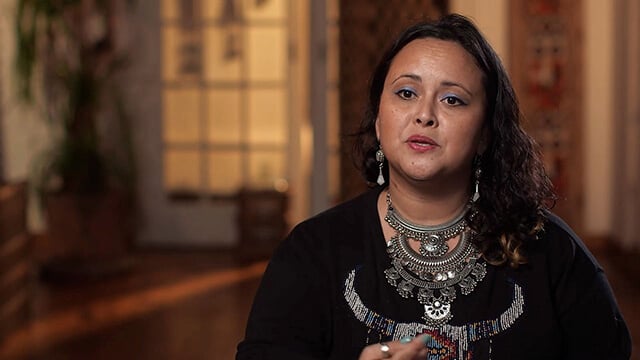Here’s a no-cost way to complete gen eds. Get details
Online Bachelor of Science in Criminal Justice
PROGRAM AT A GLANCE
Criminal justice at Strayer University
Get on the path to a career in criminal justice. Our online bachelor’s degree combines criminology with the actual techniques used in today’s criminal justice system. You’ll learn the fundamentals of forensics, behavioral analysis and crime mapping. And you’ll study criminal behavior to help you learn how to stay one step ahead of hackers, terrorists and organized criminal groups.
Take your first step toward a future in criminal justice
Discover how to help investigate and prevent crime with Strayer’s Bachelor of Science in Criminal Justice. The program explores the fundamentals of criminal investigations, criminal procedures and law enforcement. You’ll develop a deeper understanding of juvenile and adult offenders as well as the justice system and rehabilitation strategies. The curriculum builds communication and critical thinking skills while fostering historical, political and social awareness.
This program is available online and on campus.* Students enrolled in this program in Arkansas and New Jersey must follow the requirements as set forth in the catalog section applicable to their state.
*Available in an online-only format for Maryland students.
Skills you’ll learn in Strayer’s Bachelor of Science in Criminal Justice
- Explore fundamental research skills related to investigating crimes
- Learn the basics of examining a crime scene, from collecting evidence to preparing evidence for court presentation
- Prepare concise, accurate and complete reports used in the criminal justice field
- Practice ethical decision-making within the criminal justice profession
- Gain an understanding of the major media channels used in public relations, from news releases to advertisements
Explore Bachelor of Science in Criminal Justice concentrations
At Strayer, we offer our students a wide range of criminal justice concentrations, allowing you to customize learning to support your interests and career goals. If you can’t decide, your admissions officer is here to help.
Find the concentration that best meets your goals:
Earn your degree from an accredited university
Strayer University is an accredited institution and a member of the Middle States Commission on Higher Education (MSCHE or the Commission) www.msche.org. Strayer University’s accreditation status is Accreditation Reaffirmed. The Commission’s most recent action on the institution’s accreditation status on June 22, 2017 was to reaffirm accreditation. MSCHE is recognized by the U.S. Secretary of Education to conduct accreditation and pre-accreditation (candidate status) activities for institutions of higher education including distance, correspondence education, and direct assessment programs offered at those institutions. The Commission’s geographic area of accrediting activities is throughout the United States.

Bachelor of Science in Criminal Justice cost breakdown
- 40 courses, $1525 per course
- $65 technology fee each term
- $150 one-time degree conferral fee
- Additional costs for textbooks and supplies
Estimate the cost of your degree
How much can I save on a Bachelor of Science in Criminal Justice?
Estimate the cost of your degree
How much can I save on a Bachelor of Science in Criminal Justice?
Expected Graduation
...
Approximate Total
...
*Student is required to take two courses per quarter during disbursement period
PREPARING YOUR RESULTS
Time commitment
Calculate the approximate time commitment of your degree.
| Course load | ... courses/term |
| Classroom time | ... hours/week |
| Terms per year | ... terms |
| Terms to graduation | ... terms |
Cost analysis
Calculate the approximate cost of your degree
| Tuition | ... |
| Books | ... |
| Fees | ... |
| No-cost gen ed | $0 |
| Transfer credits | ... |
| Transfer Credit Scholarship | $0 |
| $4K scholarship | $0 |
| Strayer Learn and Earn Scholarship | $0 |
| Approximate total | ... |
Ways to reduce tuition
Employer Tuition Assistance
More than 500 organizations invest in their employees by partnering with Strayer University to offer access to discounted education programs.
The Strayer Learn and Earn Scholarship
For every three courses you pass, earn one on us, tuition-free, to be redeemed at the end of your program with the Strayer Earn and Learn Scholarship. Eligibility rules and restrictions apply. Connect with us for details.
Save up to $15,250 on your bachelor’s degree
As a Strayer student, you have access to no-cost gen ed courses through our affiliate, Sophia. Take up to two online Sophia courses at a time and transfer eligible courses towards your undergraduate degree.
*Savings assumes transferring 10 courses taken at Sophia. Eligibility rules apply. Connect with us for details.
What coursework do you need for a BS in Criminal Justice?
Dig into important topics of criminal justice, in areas like fraud detection, juvenile crime, criminal law and investigation. You’ll learn how laws are upheld and criminals punished, giving you a broad sense of how criminal justice professionals work. View all courses
Sample courses

Being an effective communicator is an essential skill for any profession. In this course, you will learn the secrets to writing, listening, and speaking with credibility in order to share your voice with the world.

Introduces psychology as a human and scientific endeavor. Includes examination of concepts and methods in learning, motivation, development, personality, and social behavior.
Report writing is an essential workplace skill in the criminal justice field. Judges and other professionals in the field will read these reports, sometimes under a very close lens, and depend on them for accurate information. Therefore, it’s critical these reports contain the information justice administrators need and follow state requirements. This course introduces a report writing process and uses templates to teach how to prepare concise, complete, and correct reports common in the criminal justice field. Hands-on activities will provide step-by-step guided practice for students to improve their report writing skills, and technological trends related to criminal justice reporting will be examined.

This course introduces students to the general purpose of information systems in organizations and their use of personal productivity software. Students will demonstrate tasks in common application software to include word processing, web browsing, spreadsheet modeling, database management, and presentation graphics.
Discover the fundamentals of criminal investigation by examining processes involved in identifying and arresting criminal suspects, identifying types of crimes and offenses, and preparing for the in-court presentation of evidence through testimony. Discuss techniques for evidence collection, examination and preservation. Explore developing “high technologies” useful to the criminal investigator.
Analyze a social, psychological or business problem within criminal justice or homeland or private security and recommend solutions. Analyze a situation or policy, make a current assessment and provide a proposed solution. Apply theory, the use of research and evidence-based solutions, and incorporate ethical foundations to support your solutions.
How to apply for a bachelor’s degree at Strayer?
An admissions officer can help you choose the right program, register for classes, transfer credits and find cost-savings opportunities.
Here’s what you’ll need to get started:
A completed application and enrollment agreement
A high school diploma or equivalent
Official transcripts from all colleges or universities attended
A valid, current and legible government-issued photo ID
Winter classes start on January 5
Learn more about Strayer University’s admissions process.
Transferring to Strayer from another university?
Your bachelor’s degree from Strayer could be 70% complete when you transfer up to 28 classes.
Strayer welcomes international students
Strayer University is proud to have hosted more than 4,000 international students from over 143 countries. Earn your degree in the U.S. or completely online in your home country – it’s your choice.

Campus locations
Come to a campus near you for guidance and support. You’ll have access to helpful resources, a supportive community and plenty of spaces to learn and grow.
Ready to take the next step?
Your admissions officer is here to guide you through every step of the process, from completing your application to choosing your concentration.
